Building a Brand
I’ve watched with fascination the growth of The Pioneer Woman empire. PW is Ree Drummond, whose website (http://thepioneerwoman.com/) is a smart and sassy mix of delicious recipes, incredible photography, and homespun stories. I like her easy-breezy writing style and have enjoyed her step-by-step instructions to making yummy dishes.
Essentially Ree Drummond has parlayed a blog she began five years ago to keep in touch with her extended family into a multi-dimensional career. The Pioneer Woman has become a brand. Its base is the complex web site that includes sections on cooking, homeschooling, family life, gardening, and more. The site is designed to be interactive, with a separate section for readers to contribute their own recipes. Thousands of her fans comment on each of Drummond’s posts. She uses all forms of social media. You’ll find her twittering several times a day. Same chatty style as her web site.
But the web site was just the beginning. She’s written one cookbook that came out 18 months ago (undoubtedly an easy sell to her publisher because she already had a built-in market). On her web site, she serialized the story of her transformation from suburban Yuppie to wife of a cattle rancher. She then compiled the installments into a book, which was published last Fall. That book has now been optioned by Reese Witherspoon for a big-screen movie treatment. Last month, Drummond children’s book about her bassett hound was published. And last week, it was announced that she will be hosting a daily cooking show on the Food Network. Forgive me if I’m using the wrong business term, but isn’t that what they call synergy?
I suspect one reason Ree Drummond can do all this, besides being incredibly talented and creative, is because she married a very wealthy man, The Drummond family own one of the largest cattle ranching operations in Oklahoma. Having money when starting a new venture, be it widgets or web sites, gives you a flexibility that many, if not most, entrepreneurs don’t have. Still, there are plenty of failures amongst those for whom money isn’t a consideration. So kudos to PW — she works hard and has earned her success.
But her story made me focus on the concept that authors can be a brand. In some ways that can be limiting: Can you only write one kind of story and if you try to break out into a different genre, will your audience and critics be suspicious or even angry? Imagine Stephen King writing a romance novel. How would readers react? Drummond can do the cookbook and the children’s book, because the brand is about her family life on the ranch – cooking and pets are part of both.
One compliment often given to cozy mystery writers (which is how the collective Evelyn David define ourselves) is that “you’re ready for a bigger book.” Bigger being somewhat loosely interpreted. The stakes are higher (the world will come to an end unless the sleuth can find the terrorist). The message is bigger (drugs are bad and the sleuth needs to find the head of the drug cartel). The carnage is messier (think multiple body parts as well as death). A “bigger” book, almost by definition, gets more respect.
But while I wouldn’t mind the respect, I also have no apologies for the fun mysteries that I hope we provide for our readers. A friend once remarked, “Not only do I not want to write the great American novel; I don’t want to read it.” I’m probably closer to that point of view than to the idea that I’ve got the next War and Peace in me if only I’d sit at the computer and stop playing Minesweeper.
So, if anyone wants to brand Evelyn David, I’m thinking we could start with a perfume – the scent, of course, would be a mystery.
Marian aka the Northern half of Evelyn David
Brianna Sullivan Mysteries – e-book series
I Try Not to Drive Past Cemeteries- Kindle – Nook – Smashwords
The Dog Days of Summer in Lottawatah- Kindle – Nook – Smashwords
The Holiday Spirit(s) of Lottawatah- Kindle – Nook – Smashwords
Undying Love in Lottawatah- Kindle – Nook – Smashwords
A Haunting in Lottawatah – Kindle – Nook – Smashwords
The Sullivan Investigation Series
Murder Drops the Ball (Spring 2011)
Murder Takes the Cake- Paperback – Kindle
Murder Off the Books- Paperback – Kindle
Riley Come Home (short story)- Kindle – Nook – Smashwords
Romances

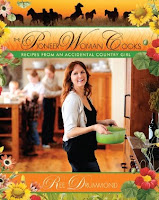


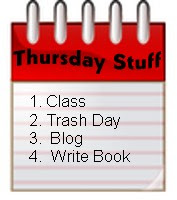
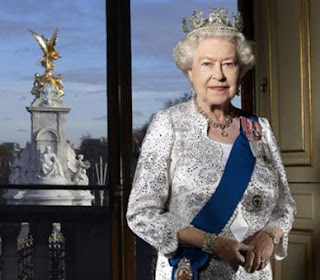
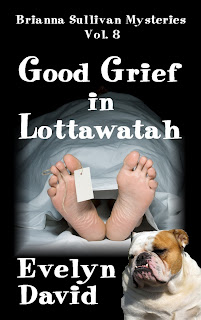
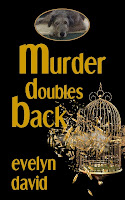
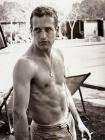
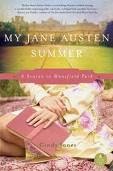
Great post, Evelyn. I've been a huge fan of Pioneer Woman for several years now and have followed her progress with both awe, respect (and a little envy!). I really don't know how she does it all! Branding is one of the biggest (and hardest) things an author can do to achieve access.
woops, meant success, but I guess access could work as well 😉
Great post. I have followed Pioneer Woman for ages. Smart lady!
You know, I admire her immensely and anyone else who achieves such success, because I know all the hard work involved. But the one thought that pops into my mind while reading this: I don't want to be a brand…I just want to write books! The Lee Drummonds of the world show that words can be powerful–and profitable–and I appreciate that. Now I'll slink back into my little cave with my keyboard and get back to writing. 😉
Thanks Maria, Sarita, and Susan for your thoughts on the topic.
I think one of the issues I struggle with is how to balance the creative and the practical side of the writing business — and it most definitely is a business as well as a creative endeavor. We all have to spend a huge amount of our time and energy promoting our "products" — and that effort definitely takes time away from our original intent — which was to tell stories. I suspect that Ree Drummond struggles with that too. And we should all have the problem of "the brand got sooooo big" — but actually it could be a dilemma when you spend more time protecting the "brand" and less time investing in writing. Lots to think about for sure.
Marian
You're right, Marian, it's such an individual thing, and it depends where you are in your career as well (and what you're trying to achieve). At this point, I'd rather put more time into my writing than into promotion (but then, I spent LOADS of time promoting early on, which I hope built a strong enough foundation). Every person has to weigh what works for him- or herself. But in order for the work not to suffer, sometimes you have to say (or your agents have to intervene and say), "Focus on the writing." So that's what I'm trying hard to do. Write more, freak out over promotion less. 😉
First off, I also check the Pioneer Woman site regularly, but only for recipes because that happens to be the only piece of what she offers on the site that meets with my interests. I did notice even within that limitation that the photos on the site show evidence that while she indeed works hard at her business (and that's my other point, it is a business), she does benefit form lots of resources to accomplish that.
And then there's the matter of mis-branding: Ree Drummond is not primarily a writer. She does have what we used to call good verbal and written communications skills, but that isn't what a writer is. This false equivalency of what she does–and again, she does lots of things really well–and what a writer does is off. So, while I do understand that even people who are primarily writers can also be huge "successes" at branding (which, let's face it, is the soft-sell term for "selling a lot"), being a writer is still a different job and it doesn't require being able to sell yourself that well. You bet being "good in a room" can help you plenty as a writer, but lots of writers are NOT good in a room and they get help from people who are as they climb up the sales figures ladder. Branding and selling big and well does require being able to work well with someone who is great at selling. Ree Drummond is one of those cases where her primary talent is that she knows how to make the sale.
Thanks Susan and Vicky. Food (pardon the pun) for thought.
I might add that I think that publishers often confuse someone with good verbal and written communication skills and writers — and that they would prefer to buy the former if she has already built a platform where the books will sell.
Marian (who's going back to writing today!)
Oh, you're right, Marian. Publishing is a business and the business model no doubt says that it's going to be better to publish something that maybe (and I agree it's a "maybe", not always a definitely!) has less depth and is not as inventive in the writing, but does have a good pre-loaded buyer base. I suppose you can't blame them for this, misdirection and conflation of labels aside.
Good post and comments. I think branding often is another word for your marketing. For instance if you were a psychiatrist writing mysteries with a psychiatrist as a heroine, you would build on that with your marketing and it would also be your brand.
For me, I mostly just do what I can in the promoting line and hope people realize that Marilyn Meredith and F. M. Meredith are the same person writing two different series.
Marilyn
I do think "branding" works better for nonfiction authors whose platform is exactly what they're writing about. A lot of successful bloggers who write about food, fashion, tips for moms, etc., have already built a great platform that the publishers are happy to use in marketing their books. It's a wee bit different for writers of fiction, unless you're a legal eagle with a thriller series featuring a legal eagle (you know what I mean). The most important thing–and I think it sometimes gets lost in all this, "We must market ourselves!" feeding frenzy–is that we must write good books that people want to read. Preferably, lots of people. But we need to take the time to craft those stories. And spending too much time on the business side and too little on the writing side isn't always a good thing. Just my two cents' worth again (and I know my feelings now are different than 12 years ago when I was starting out), but there you are.
Susan brings up to correct and good points.
1. If you don't write well, fiction or not, even if you get a deluge of buyers, you'll also generate a deluge of buyers/readers remorse! That ain't good for the old career.
2. I'd agree this whole multi-media branding and marketing gig is different and fair to say easier for non-fiction writing. Non-fiction is just on the face of it easier to convey, describe, put tags on, etc. All that makes for easier pitching of the sale.
Something else just occurred to me: I think the older the reader sometimes the more likely they are to want non-fiction or at least to split their buying and reading because they are tired of being let down by fiction and/or want to spend time learning new things over just escaping. Don't get me wrong, lots of people over, say, 35, still love fiction, but they also are the bigger demographic for non-fiction.
Does this maybe link the audience for things like good telivision and radio non-fiction/talk/journalism tends to be the older demo, too? When I was a kid, I didn't listen to a lot of talk radio or watch political discussion television programs, but I do now . . .
Oooh, I just realized I called her "Lee Drummond"–I mean, Ree. Shows how well her branding worked on me. Oy. I am officially a dork.